- Menu
-
Enhancing Sorghum for Biofuel Production
Food, Energy and Water
-
Getting to the Root of Crop Improvements
Plant Science
-
New Chancellor Envisions Bold Future for Research
Leadership
-
NU FEWS Sparks Innovation in Food, Energy and Water
Food, Energy and Water
-
Closing Achievement Gap for Kids
Early Childhood
-
Enhancing Early Childhood Development
Early Childhood
-
Drones Could Help Fight Fire with Fire
Unmanned Aerial Vehicles
-
Surprising Discovery Contradicts Predictions
X-ray Material
-
Laser Creates Surfaces that Mimic Nature
Laser Research
-
USSTRATCOM Delegation Visits UNL
Defense Research
-
Prospecting with Biosensors at Home or in the Field
Chemistry
-
Gift Creates Johnny Carson Emerging Media Arts Center
Media Arts
-
System Helps Diagnose, Treat Brain Damage
Health
-
UNL Hosts University, Industry Leaders
Industry Relations
-
Momentum Builds on Nebraska Innovation Campus
Economic Development
-
Bioinformatics Focus for NIC’s First Faculty Startup
Bioinformatics
-
Improving Surgery through Robotics
Robotics
-
CD Celebrates Collaboration with Philip Glass
Performing Arts
-
Strengthening Region’s Nanotech Assets
Nanoscience
-
Geospatial Technology Helps Restore Wetlands
Environment
-
Maximizing Innate Talent
Leadership
-
Early Career Awards Boost Promising Research
Honors
-
Research Highlights
-
Accolades
-
Financials
-
Credits
-
On the Cover
- PDF version
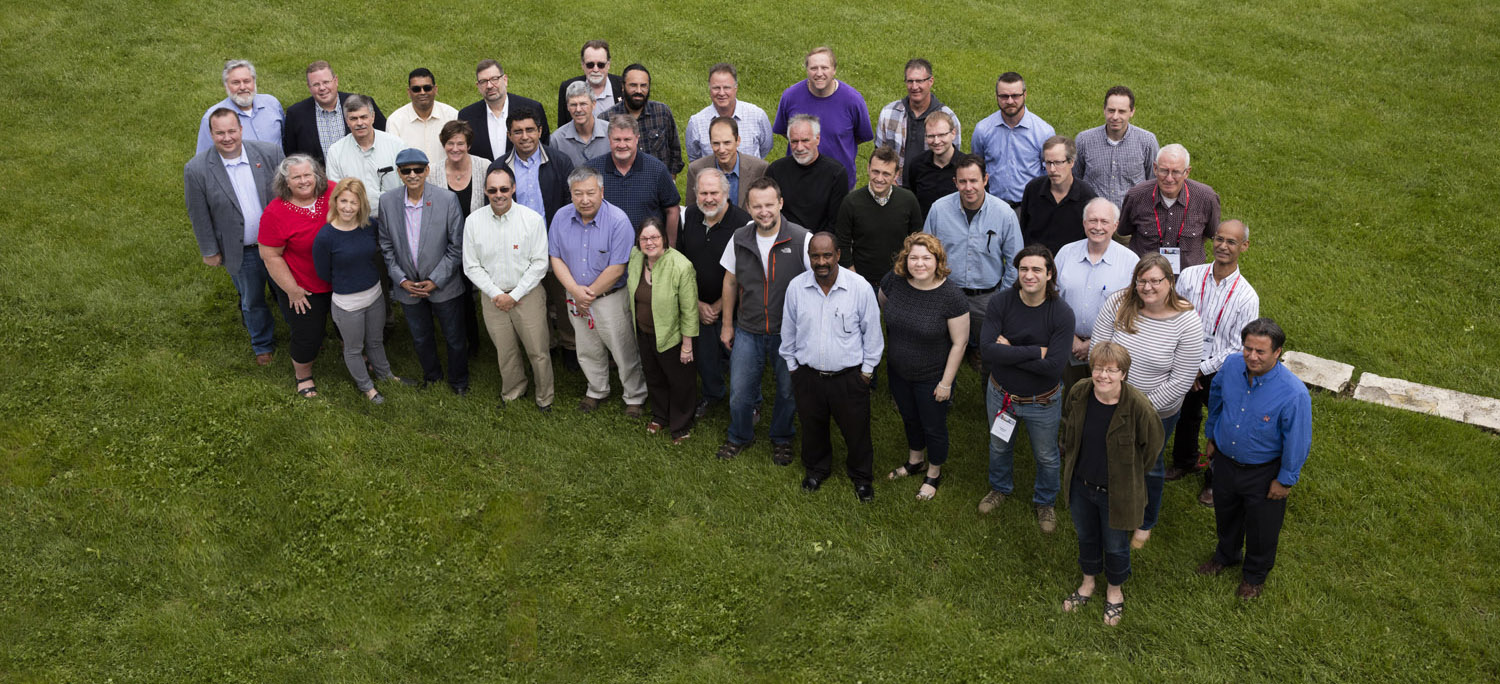
NU FEWS Sparks Innovation in Food, Energy and Water
Sustaining crucial food, energy and water systems in the face of a changing climate and a burgeoning population worldwide is among our most complex global challenges.
To expand its traditionally strong research in food, energy and water systems, UNL launched the NU FEWS Initiative in 2015. Developed in partnership with Knowinnovation, creators of the Ideas Lab, this universitywide initiative offers an interactive process to build highly interdisciplinary teams and generate innovative project concepts. The goal: novel research proposals responding to Innovations at the Nexus of Food, Energy and Water Systems (INFEWS), a new priority area led by the National Science Foundation and the U.S. Department of Agriculture.
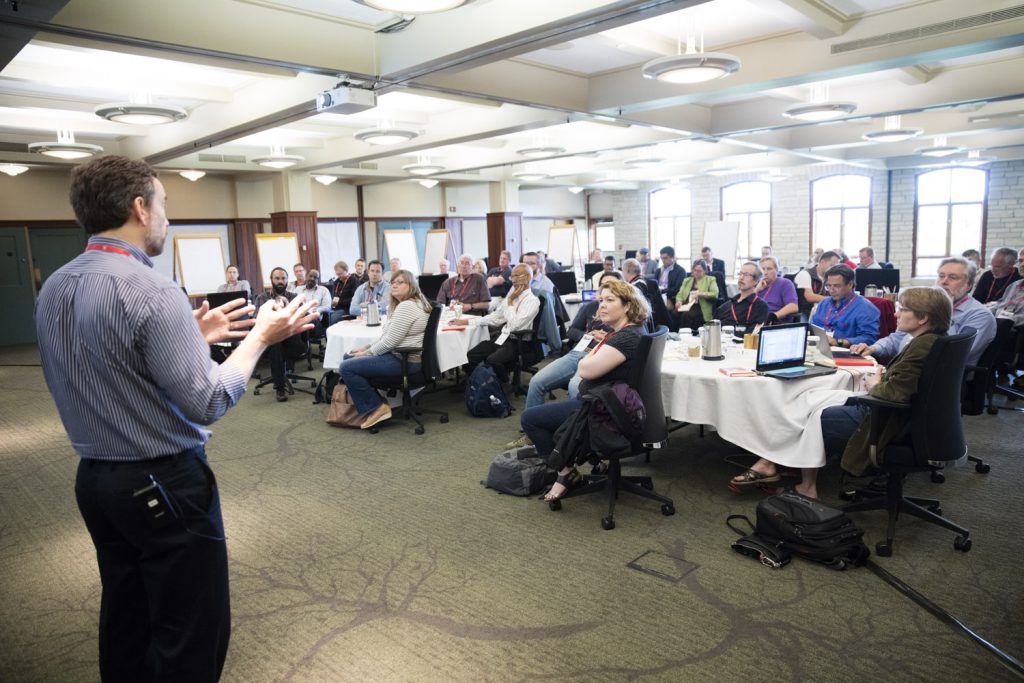
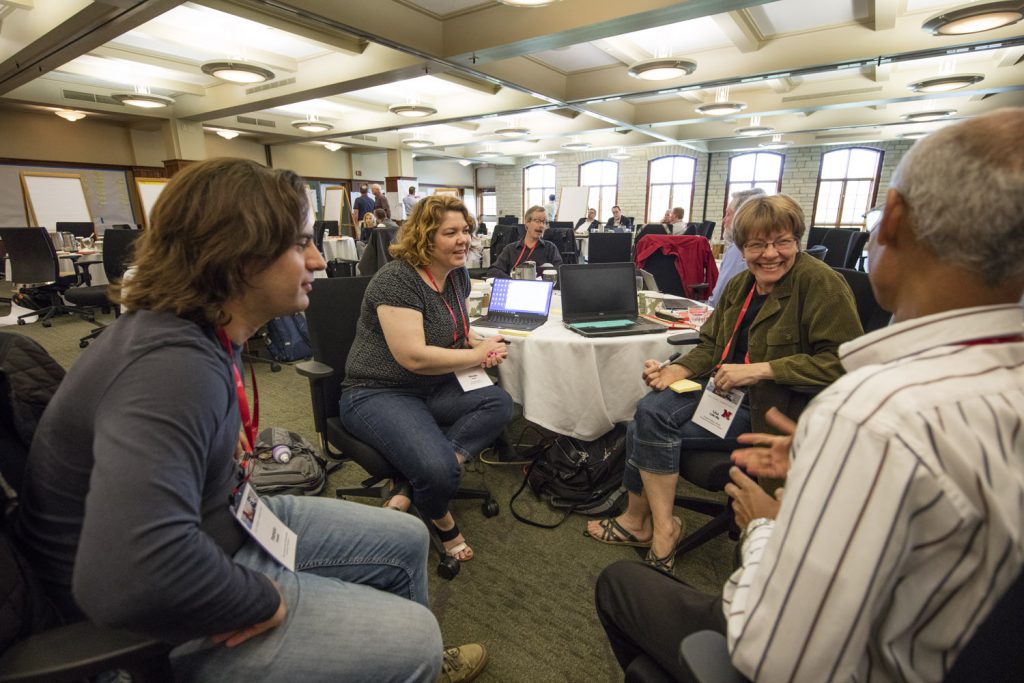
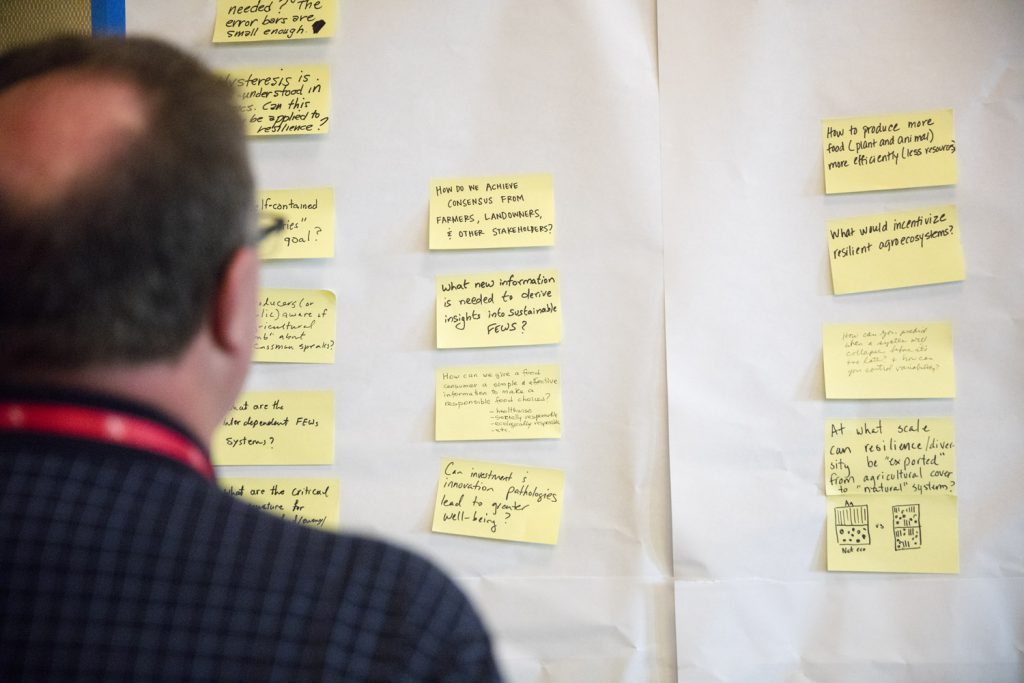
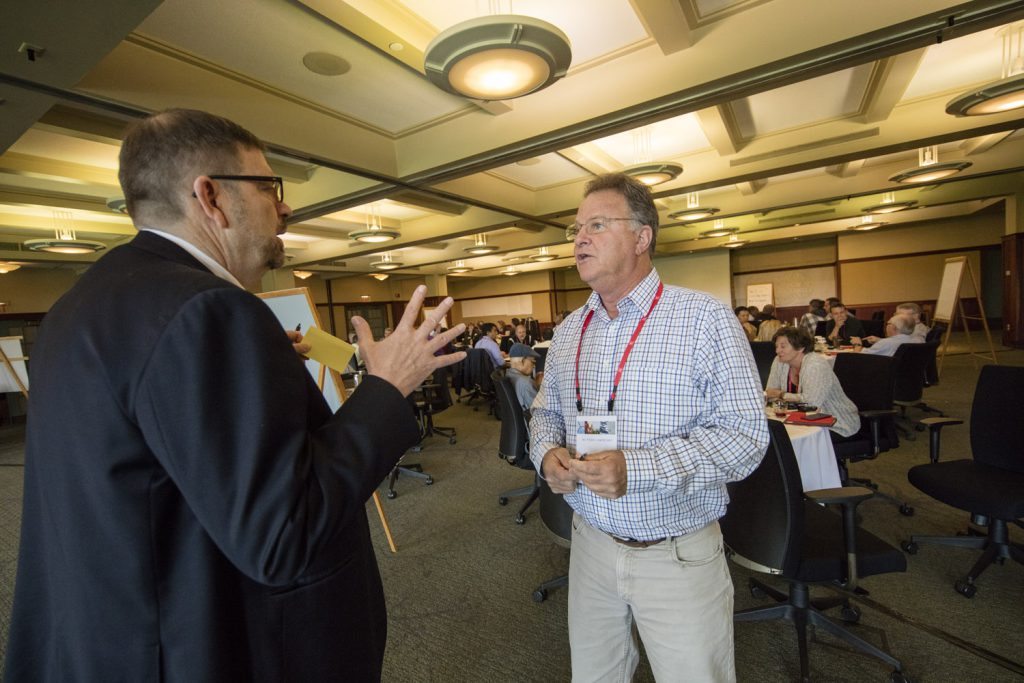
During a series of meetings and workshops, nearly 200 UNL faculty with expertise in fields ranging from physics to economics to geography discussed different dimensions of FEWS and developed novel research questions. A final three-day Jumpstart session generated innovative proposal ideas addressing the question: “How can we build intensive, resilient agro-ecosystems?”
“This initiative lays the groundwork for UNL to play an even more significant role in this area of research so critical to UNL, our state and the world,” said Prem S. Paul, vice chancellor for research and economic development.
